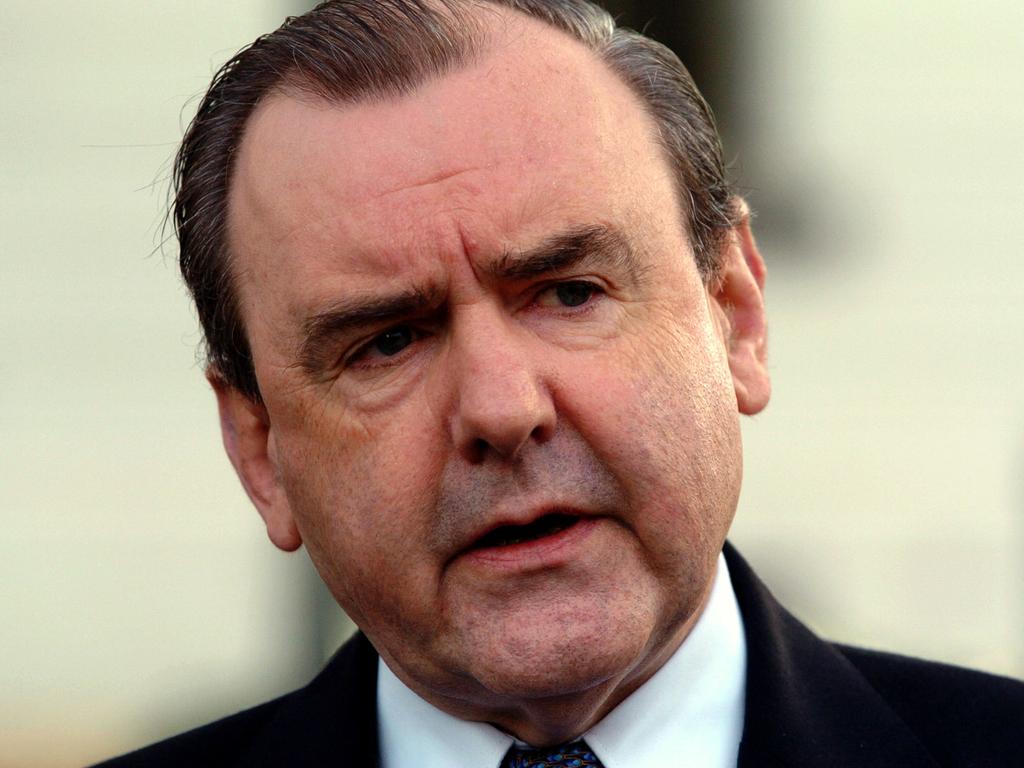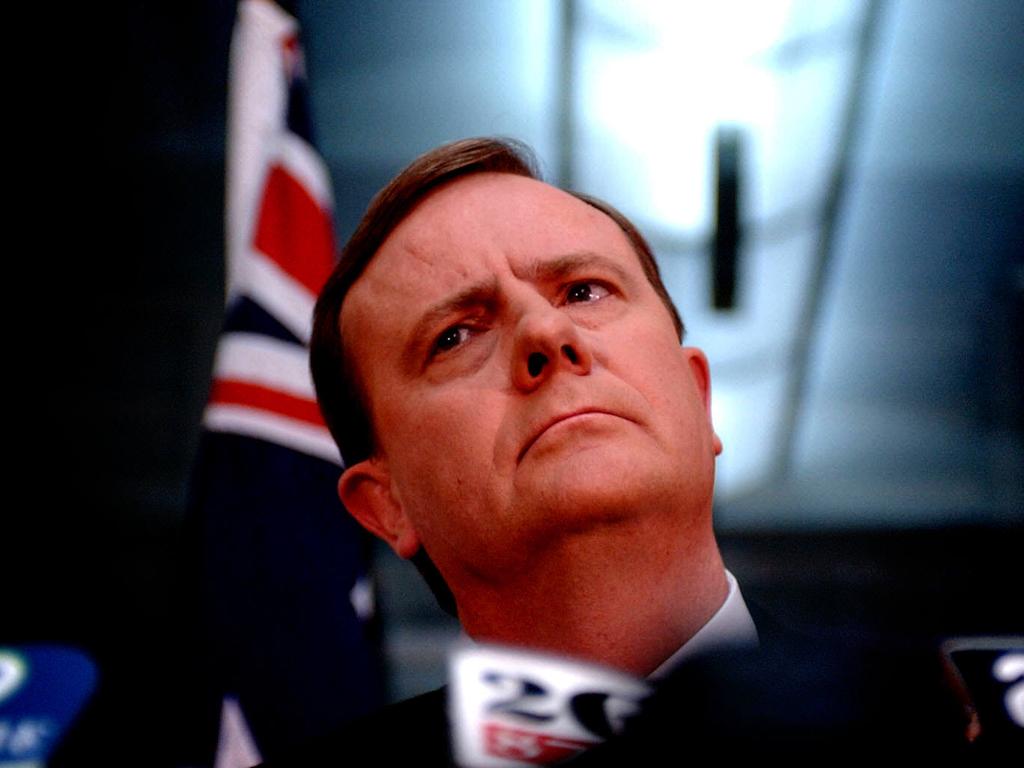John Howard, Peter Costello lash Anthony Albanese and Jim Chalmers’ budget mismanagement
John Howard and Peter Costello have delivered a twin blast, slamming the Albanese government’s financial management while lashing Treasury as an institution in decline.

John Howard has warned that Australia’s deteriorating budget bottom line and escalating debt could put the nation’s credit rating at future risk, while Peter Costello has lashed Treasury as an institution in decline that no longer defends taxpayers against spendthrift governments.
The former prime minister and treasurer criticised the Albanese government’s financial management, arguing the failure to arrest spending had put upward pressure on inflation and interest rates, worsening cost of living, while the economy had lost competitiveness and productivity was in decline.
Mr Howard said the budget was “out of control” and voters were “haunted by all the debt”, with the fiscal balance sheet awash in red ink over the forward estimates and government debt set to exceed $1 trillion, as revealed in the mid-year economic and fiscal outlook.
“There may be no immediate risk to your credit rating, but eventually it will be,” Mr Howard explained. “Investors compare what Australia used to be like, and there was a time when a Labor government put a great store on balancing the budget … this government is accepting of a long-term debt future.”
Mr Costello said the “rigour” within the Treasury had “declined considerably” and it should not be “turning a blind eye” to the fiscal profligacy of successive Labor and Coalition governments.
“You cannot rely on the Treasury any more to try and defend taxpayers,” Mr Costello argued. “They’ve thrown in their lot with this big government, big spend. So, even the Treasury as an institution, I think, has been demeaned by this process.”
The exclusive interviews with Mr Howard and Mr Costello mark the release of their government’s cabinet papers from 2004, with fiscal consolidation, defence expenditure, threats of terrorism, climate change and energy policy, and the “barbecue stopper” of work and family balance as issues that echo today.
In 2004-05, the budget recorded a $13.5bn (1.5 per cent of GDP) surplus, the seventh of 10 budget surpluses Mr Costello would deliver between 1996 and 2007, and net debt fell to $11.5bn (1.3 per cent of GDP), and was on a trajectory to zero.
The budget still delivered tax cuts and boosted family assistance and maternity payments, and funding for childcare places. Mr Howard said the contemporary lesson was that governments could still provide initiatives while being prudent overall with the budget.
The former prime minister and treasurer were surprised that Jim Chalmers did not keep the budget in surplus by tightening spending, which would have resulted in lower interest rates for homeowners and reduced inflation. Instead, the Treasurer’s MYEFO revealed a $22bn blowout in deficits. The next financial year will see the deficit increase to $46.9bn, up from $26.9bn this year.
The Reserve Bank has warned governments about the need to reduce spending, as has the International Monetary Fund. But spending growth in the budget is forecast to continue to grow and will increase to 27.2 per cent of GDP, the highest level since the 1980s, apart from the pandemic.
“The current government made a terrible economic and also political error in having delivered a couple of surpluses and then not said, ‘We are going to do everything we can to keep it that way because we can’t afford (not to) at this difficult time for our economy’,” Mr Howard said. “Maybe the government thinks the public don’t care. I think they are wrong.”
Mr Costello said both parties were to blame for the weakened national balance sheet. He said it was a mistake not to return the budget to surplus after the necessary stimulus spending during the financial crisis in 2008 and again during the pandemic in 2020-21.
“What’s happening in Australia is that tax per capita is rising and spending per capita is rising even faster,“ the former treasurer said. “We are progressing to a higher-tax, higher-spend, higher-debt country and this is at the same time that we are becoming a less productive country.
“If you ever want to recover productivity, you have got to do something about the growing tax burden and the growing spending burden. There are a lot of things that have contributed to the falling productivity in Australia, but that’s a big one.”
The upshot, Mr Costello said, was that while other countries were reducing interest rates, Australia was yet to do so. This was a direct consequence of a big-spending and big-taxing government that let the budget slip back into deficit.
“The rest of the world is in an easing cycle – the British, the Europeans, the Americans, the New Zealanders,” he explained. “Australia has not had any easing yet. The reason for that is not because our economy’s growing incredibly fast, it’s not, our economy is sluggish. The reason for that is government expenditure. There is no doubt that the government expenditure has kept interest rates higher longer in Australia. If they had tightened spending in the last budget, or the one before it, we would be in an easing cycle now.”
The cabinet papers from 20 years ago show the government wrestling with many of the same issues that governments are dealing with today. A priority for the national security committee was the occupation of Iraq and the insurgency that undermined efforts at capacity building and establishing an effective transitional government.
The Howard government changed politicians’ superannuation entitlements, initiated reforms to aged care, established after-hours GP clinics, examined how to alleviate disadvantage among Aboriginal Australians and foster reconciliation, denied legal recognition of same-sex marriage, and balanced a tough line on illegal boat arrivals with an increased refugee and humanitarian immigration intake.








To join the conversation, please log in. Don't have an account? Register
Join the conversation, you are commenting as Logout